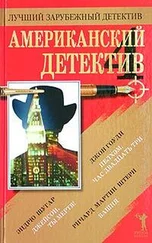“We’ll stand by for word.”
“Sure.” And then, speaking aside, “All right. Haul your ass. Here we go.” The walkie-talkie clicked dead.
The two battalion chiefs stood motionless, staring at nothing. Tim Brown’s lips, Patty saw, moved gently. In prayer? Giddings wore a scowl and his blue* eyes were angry. He looked at Nat and slowly, almost imperceptibly shook his head. Nat nodded faintly in acknowledgment, perhaps agreement. Patty closed her eyes.
It was not possible, she thought, and knew that it was. No dream, no nightmare this. There would be no sudden awakening, no rush of relief that the horror had fled with the morning light. She wanted to turn and run. Where? To Daddy? As she had run only this noontime for comfort, solace, understanding? But there was no—
The walkie-talkie in Brown’s hand came to sudden hollow life. It uttered a scream and then another. And then there was merciful silence, and the trailer was still.
Brown was the first to move. He walked to the drafting table and set the walkie-talkie down very carefully, switched it off. He looked at no one. In a slow monotone he began to swear.
6:19–6:38
Paula Ramsay walked up to the two chairs in the quiet corner of the Tower Room. “I’m sorry to interrupt,” she said, “but what’s happening behind your back—” She shook her head. “I’m afraid I am old-fashioned.”
The governor nodded, expressionless. “With the exception of Paul Norris and Grover,” he said, “they’ve all done splendidly, so far. What can we expect?”
“Cary Wycoff is making a speech.”
The governor cocked his head. He could hear the voice, not the words; but the tone, high-pitched, angry, almost hysterical, spoke volumes. “He’s probably saying that someone is to blame and he is promising an investigation.”
Paula Ramsay smiled faintly. “You have it exactly right, Bent.”
“In a little while,” the governor said, “Cary will lead a delegation demanding that something be done. God, how many delegations like that I’ve listened to!”
“People,” Paula said, “are swarming to the bar. One of the waiters is sitting in a comer by himself, drinking from a bottle—”
The governor wondered if it was the waiter with three kids. He sighed and stood up. “What do you think I can do, Paula?”
Paula’s smile was brilliant. “I am like Cary Wycoff, Bent,” she said. “I think something ought to be done, but I don’t know what.” She paused. “And so I turn to you.”
“I am flattered.” The governor’s smile sadly mocked himself and the entire situation. “There was a Mark Twain character who was tarred and feathered and being ridden out of town on a rail.” The smile spread. “He said that if it weren’t for the honor of the occasion, he would just as soon have walked. I’d just as soon sit right here.” He glanced down at Beth. “But I’ll give it a try.”
He passed the closed fire door where Grover Frazee’s body lay beneath a white tablecloth. The secretary general was standing looking down at the motionless shape. Slowly, solemnly he crossed himself, and then, seeing the governor, smiled almost apologetically.
“Since my student days,” the secretary general said, “I have prided myself on my freethinking. Now I find that early beliefs do not die so easily. Amusing, is it not?”
“It is not, Walther. I find it almost enviable instead.” The secretary general hesitated. “I am beginning to understand,” he said, “that you are basically a kind man, Bent. I am sorry I did not realize before.”
“And,” the governor said, “I always thought that you were, that anybody in your position simply had to be just a stuffed shirt.”
They smiled at each other.
“In my country,” the secretary general said, “where mountain-climbing is a popular sport, men tie themselves together with ropes for safety when they climb, and we have a saying: ‘There are no strangers on a rope.’ It is sad, is it not, that it requires a crisis situation before people come to know one another?” He paused. “Is there anything I can do to help?”
“Pray,” the governor said without mockery.
“I have done that. I shall continue.” Again the pause, polite, solicitous, sincere. “If there is anything else, Bent—”
“I’ll call on you,” the governor said, and meant it. He walked out into the center of the room and looked around.
Paula had not exaggerated. The bar was doing a land-office business; in the center of the room Cary Wycoff was making a speech; it was the waiter with three kids who was sitting by himself drinking from a bottle of bourbon; in the far corner the transistor radio was playing rock, and some of the younger people were maneuvering in spastic gyrations.
There was smoke leaking from the air-conditioning ducts now, but it was not yet oppressive; its acrid taste hung in the air. The governor sneezed.
Mayor Ramsay nearby said, “Good God, look at that!” One of the younger dancers, female, was carried away. With a single motion she stripped her dress over her head and threw it from her. She wore minibriefs and no brassiere. Her generous breasts bounced with each pelvic lunge.
“It would have gone over big at the Old Howard when I was in college,” the governor said. “Kitty would have enjoyed it.” He smiled. “So would I.”
Senator Peters walked up, “It’s getting hot,” he said, “in more ways than one.”
Ben Caldwell joined the group. His face was expressionless. “More smoke,” he said. “Until we broke out the windows, this was a more or less sealed system. Now—” He shook his head, smiling faintly to indicate that he understood there had been no other course. “I am still waiting for Nat Wilson’s other idea.”
Cary Wycoff let out a sudden wordless roar and shook his fists above his head. “Goddammit, have you all gone mad?” He glared at the governor’s group. “Old men standing around at a tea party! Don’t you even understand what’s happening?”
The temptation was strong to reply in kind, shouting, gesticulating, charge and counter-charge until all sanity disappeared. The governor stifled the temptation. “I quite understand that you are having a temper tantrum, Cary,” he said. “Are you going to hold your breath until your face turns blue? That is popularly supposed to get results.” Cary got himself under control with effort. A group had gathered behind him. The governor recognized a face here and there. They watched him cautiously.
“We’ve listened to you,” Cary said. His voice was calmer now. “We’ve behaved like little ladies and gentlemen—”
“All of you,” the governor said, “except Paul Norris and Grover Frazee. They wanted action. You saw the results. Is that what you have in mind, Cary?” His voice now was cold and hard. “If you do, there is the fire door. It is unlocked.”
Cary was silent, breathing hard.
“There is an alternative,” the governor said. “We were just discussing the broken-out windows. You could jump.” Someone in the group behind Cary said, “There has to be some way, goddammit! We can’t all be trapped here like rats!”
“And,” Cary shouted, “that silly gesture of shooting a line over from the Trade Center tower. A token! That’s all it was! Everybody knew it couldn’t work!”
There was a general murmur of agreement. The governor waited until it subsided. The faces, he thought, were no longer polite, even deferential; they were the faces of a mob preparing to stone the police. Fear and the anxiety of helplessness needed no purpose.
“I am open to suggestion,” the governor said. “We all are. Do you think I enjoy the situation?”
Читать дальше










